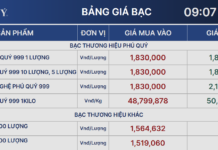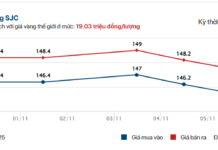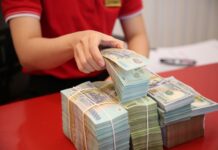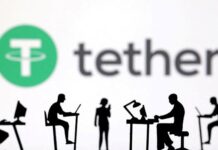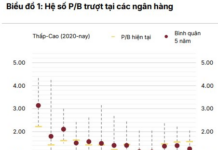Potential Criminal Liability
For the first time, Vietnam has established a legal framework for the cryptocurrency market with Resolution No. 5, issued by the government and effective from September 9, 2025.
According to experts, a key concern for many investors is the requirement to transfer their assets from international platforms to domestic systems once the regulations take effect. After a six-month grace period, individuals continuing to trade on unauthorized platforms may face administrative penalties or even criminal charges.
Mr. Phan Đức Trung, Chairman of the Vietnam Blockchain and Digital Asset Association (VBA), stated that the resolution marks a new era for the cryptocurrency market. It not only sends a positive signal but also represents the first step toward regulating the market under the law, ensuring transparency and oversight.
However, Mr. Trung noted that the market will cater primarily to experienced, professional players. The requirement to transfer accounts from overseas is aimed at redirecting existing transactions to Vietnam rather than creating new users from scratch. The primary benefit is that investors and businesses will operate legally, with legal protection. In return, they must share profits through fees and taxes.

Pilot Cryptocurrency Market: Investors Concerned About Platform Transition. (Illustrative Image)
“The gains and losses are clear. The policy’s impact is not to create a new market but to reshape and regulate an existing segment of the old market,” Mr. Trung analyzed.
He also highlighted differences from international practices. Many countries focus on standards like technology, operational processes, team experience, professional certifications (such as ACAMS for anti-money laundering), and substantial professional liability insurance packages worth hundreds of millions of USD, rather than emphasizing large capital requirements.
Vietnam’s high capital requirement can be seen as a way to ensure participating businesses have genuine financial capability. “This capital could even be used for insurance purposes, ensuring businesses can compensate customers in case of incidents,” Mr. Trung said.
Financial expert Phan Dũng Khánh opined that the regulation requiring asset transfer to domestic systems needs clearer guidelines. For instance, investors holding digital assets in international wallets for years without transactions should not be penalized after the six-month deadline, as cryptocurrencies are not centrally registered.
Investors also have mechanisms for peer-to-peer transactions and asset transfers. Therefore, Mr. Khánh suggested penalties should only apply when investors transfer assets without using licensed domestic platforms. This regulation would allow state authorities to collect transaction taxes while aligning with the decentralized nature of the cryptocurrency market.
Another concern for investors is that domestic platforms may be less attractive than international ones. Mr. Nguyễn Tuấn Anh, a crypto investor in Hanoi, expressed worry that if Vietnamese platforms list only a few hundred tokens, they may struggle to attract investors, as international platforms offer millions of tokens.
Additionally, without international connectivity and restricted to licensed domestic platforms, blockchain’s core principles of decentralization and borderlessness would be challenged.
Mr. Tuấn Anh also noted the limited number of digital asset platforms in Vietnam due to the high capital requirement of 10,000 billion VND, which few businesses can meet.
“A legal framework for the cryptocurrency market will create a safe, stable environment. However, the focus should be on protecting investor assets, not just capital requirements. Many countries mandate asset insurance for platforms instead,” Mr. Tuấn Anh shared.
A representative from a digital asset company added that platforms must offer quality products to attract investors. If Vietnamese platforms have limited products and low liquidity, they will struggle to compete.
10,000 Billion VND Capital Requirement Not Encouraging for Businesses
Mr. Phan Đức Trung noted that the 10,000 billion VND minimum capital requirement for cryptocurrency platforms is unique compared to other countries, which focus more on technology investment, insurance, and anti-money laundering measures.
Vietnam’s emphasis on capital in the pilot phase aims to ensure safety. However, issues like custody regulations, separation of proprietary and client trading, and hot/cold wallet distinctions need clarification.
“In the pilot phase, only 2-3 platforms are likely to meet the requirements. Even licensed entities will find effective operation, investor service, revenue generation, and contribution to common goals challenging,” Mr. Trung commented.
Mr. Lê Bảo Nguyên, Deputy CEO of SSI Digital, views the resolution as a positive signal for both investors and businesses. However, the high capital requirement and large shareholder mandate mean few domestic businesses will qualify, though this is necessary to ensure market capability and responsibility.
Many blockchain startups remain uncertain about their operational models and await detailed guidelines. The community’s expectations are high, with a desire for clear direction and long-term development.
Mr. Nguyên emphasized the need for a cautious, step-by-step pilot phase. Starting with basic, manageable products to test the system, followed by advanced products once stability is achieved. Multi-layered oversight—covering capital, shareholders, asset custody, leverage limits, and transparency—is essential. An investor protection fund and regular audits are also crucial. The principle is to start small and secure, then expand once safety is proven.
Assoc. Prof. Nguyễn Hữu Huân (University of Economics Ho Chi Minh City) affirmed that a formal legal framework will foster market development and reduce negativity.
However, he believes the 10,000 billion VND capital requirement discourages startups, particularly tech-focused enterprises unlikely to meet this condition.
To fully leverage the cryptocurrency market’s benefits, a more inclusive ecosystem is needed, allowing fintechs to participate transparently and controlled but without excessive constraints. This would position Vietnam’s cryptocurrency market as a global launchpad for startups.
According to Mr. Huân, the ecosystem should extend beyond trading to include decentralized finance (DeFi), crypto-backed peer-to-peer lending, tokenization of real estate or carbon credits, and secure custody services to protect investors.
Vietnamese Consumers Spend Trillions of Dong on iPhone 17 Purchases
On the first day of the official launch of the iPhone 17 and iPhone Air in Vietnam, the mobile device market witnessed a record-breaking number of pre-orders and deliveries.

